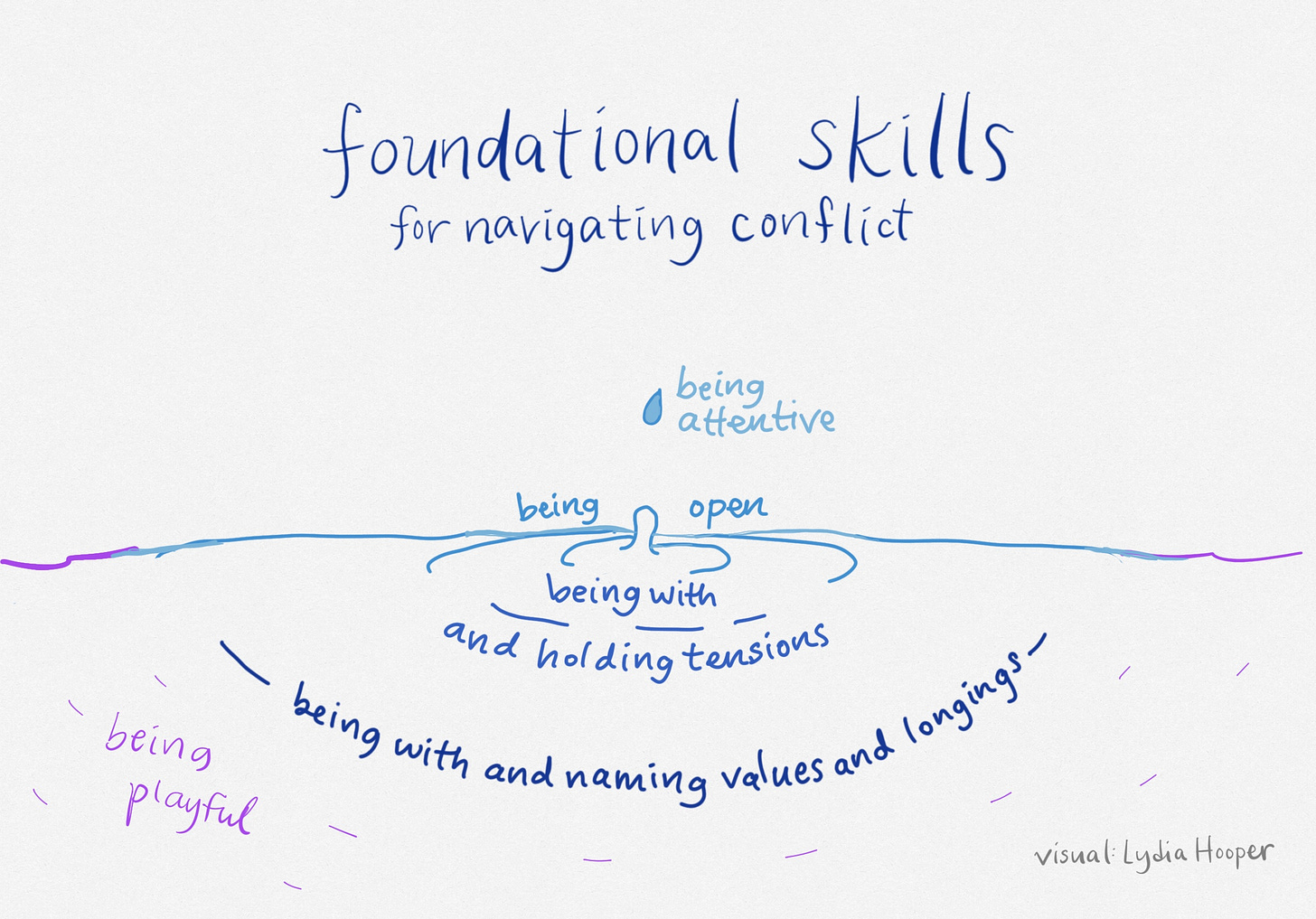It’s already Episode 3 of the Complex Everyday Conflicts podcast series!
For this episode, I share what I believe are foundational skills for navigating conflict, and I share a bit about the people who are my go-tos as I continue to build these skills.
In the episode I phrased them a bit differently, but I think *being* is key for each, so here’s how I’d describe them as a whole:
Being attentive
Being open
Being with and holding tension
Being with and naming values and longings
Being playful
These may seem straightforward, but in my experience they require wholehearted commitment and consistent practice. I hope this episode sheds some light for you, listener, no matter where you are on your journey.
I did not mention that you are more than welcome to rename these skills if something works better for you, so long as you remain true to the ideas. I confess that unlike the other episodes, I did do some slight editing with this episode for the purposes of clarity, however letting go of perfection remained a principle so my apologies if any sudden changes in volume or tone feel less than delightful to you.
If you enjoy this episode, please share it with others! And if you wish, you can leave me a tip.
This is a final call for your questions—please share them here, message me on LinkedIn, or visit tinyurl.com/everydayconflict. I will publish an episode with my responses later this month (questions will be kept anonymous).
Lastly, here are links to the people and resources I mentioned in this episode:
Active Hope: How to Face the Mess We’re in with Unexpected Resilience and Creative Power by Joanna Macy and Chris Johnstone
Interviews with Kai Cheng Thom: Writing Love Letters to Monsters in Tricycle Magazine and The world can be painful. But love is possible, too. on Code Switch
High Conflict: Why We Get Trapped and How We Get Out by Amanda Ripley
Resmaa Menakem’s offerings, including a free online video course
Example of a needs wheel (to use for identifying values and longings)
Sarah Peyton’s offerings (including a free webinar on Dec. 12, 2023)
Resources from Miki Kashtan (free or available on a full gift economy basis)
Báyò Akómoláfé’s offerings and recorded dialogues with the Othering and Belonging Institute
Lama Rod Owens’ book Love and Rage and some free resources













Share this post